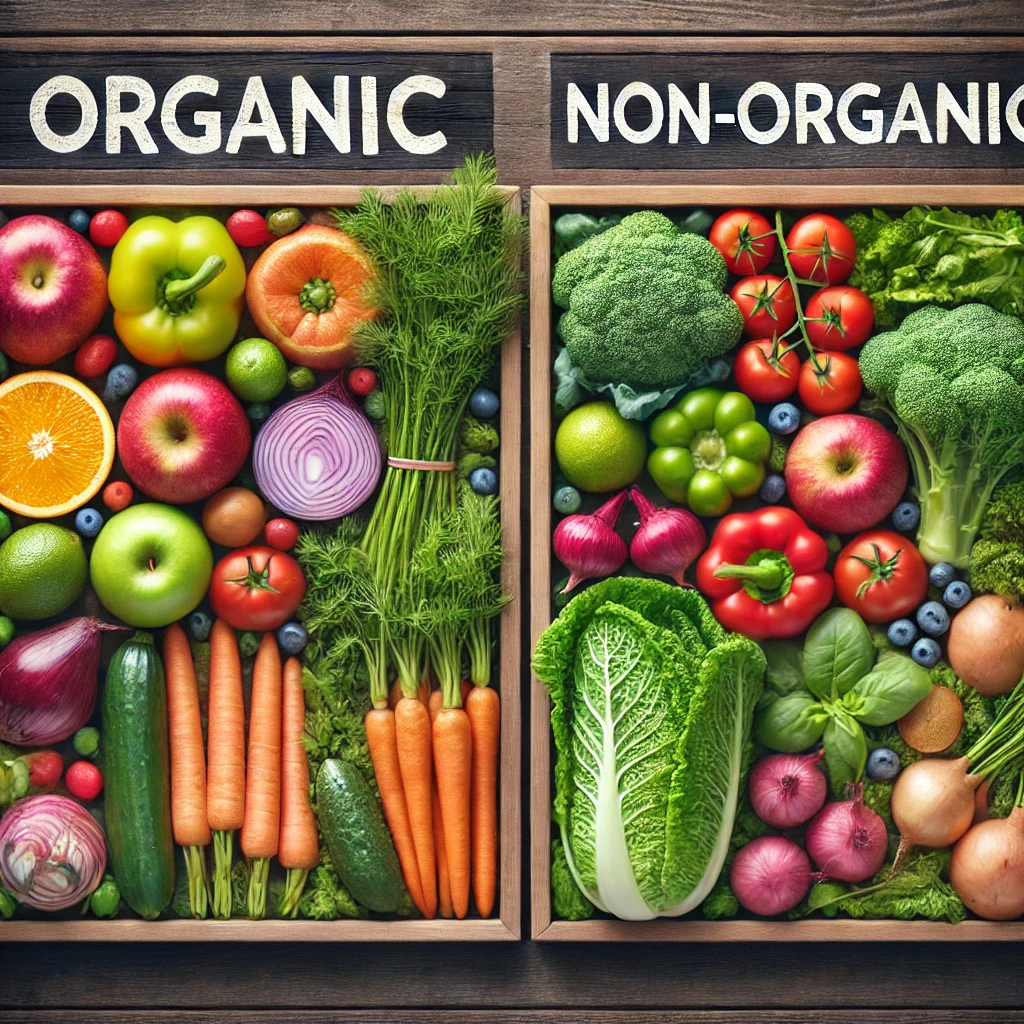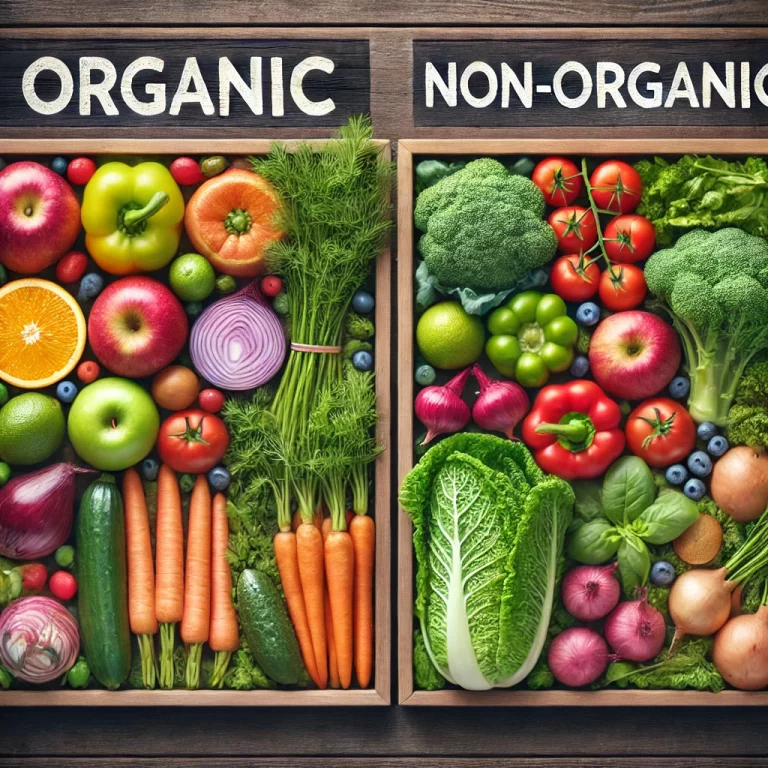Organic food has become a staple in many households, with people seeking healthier, more environmentally friendly options. But does organic food live up to the hype? In this blog post, we debunk some of the most common organic food myths and provide insights on how to make more informed choices for sustainable eating.

Myth 1: Organic Food Is Always Healthier
While it’s a common belief that organic food is automatically healthier, that’s not always the case. Organic farming practices avoid synthetic pesticides and fertilizers, which can reduce exposure to certain chemicals. However, it’s important to remember that the term “organic” doesn’t guarantee that the food is low in sugar, fat, or calories.
For example, organic processed foods like cookies or chips may still be high in unhealthy ingredients, just like their non-organic counterparts. It’s essential to read labels and make informed choices rather than assuming all organic products are healthy.
Takeaway: Organic doesn’t always mean healthier. Focus on whole, minimally processed foods, whether organic or not, to achieve a balanced diet.
Myth 2: Organic Food Is More Nutritious Than Conventional Food
Many people believe that organic food is more nutritious than conventionally grown food, but scientific studies have shown mixed results. While some studies suggest slightly higher levels of certain antioxidants in organic produce, the overall nutrient content is similar between organic and non-organic food.
A Stanford University study found no significant differences in vitamin and mineral content between organic and conventional produce. Therefore, the nutritional benefits may not be the primary reason to choose organic.
Takeaway: Organic food may contain fewer pesticides but is not necessarily more nutritious. Focus on eating a diverse range of fruits and vegetables, regardless of whether they are organic or not.
Myth 3: Organic Farming Is Always Better for the Environment
One of the most persistent organic food myths is that organic farming is always better for the environment. While organic farming generally uses fewer synthetic chemicals, it can require more land and water than conventional farming to produce the same amount of food.
Organic farms often have lower yields, meaning more land may be needed to grow the same amount of crops, which could lead to deforestation and habitat loss. Additionally, organic farming may require more water, especially in dry areas.
Takeaway: While organic farming has its environmental benefits, such as reduced pesticide use, it’s not always the most sustainable option. Look for foods produced through sustainable agriculture practices, which prioritize both environmental impact and resource efficiency.
Practical Tips for Sustainable Eating
To eat sustainably, it’s important to consider more than just whether food is organic. Here are some practical tips for making eco-friendly and health-conscious choices:
| Sustainable Eating Tip | Description |
|---|---|
| Buy Local | Purchase locally grown produce to reduce the carbon footprint associated with transportation. |
| Reduce Food Waste | Plan meals and store food properly to minimize waste. Consider composting leftovers instead of throwing them away. |
| Seasonal Eating | Opt for seasonal fruits and vegetables to reduce the environmental impact of growing out-of-season produce. |
| Plant-Based Diet | Incorporate more plant-based meals into your diet. Animal farming has a much larger environmental footprint compared to plant farming. |
| Organic When It Matters | Prioritize buying organic when it comes to products like leafy greens or apples, which are often treated with more pesticides. See EWG’s Dirty Dozen for more details. |
By following these tips, you can make more sustainable food choices that are better for both the environment and your health.
Conclusion: Making Informed Choices for Sustainable Eating
Choosing whether to eat organic is a personal decision, but it’s essential to be informed about the realities of organic farming practices and their impact on health and the environment. While organic food offers some benefits, it’s not a silver bullet for better health or sustainability. Focusing on sustainable eating by reducing food waste, buying local, and consuming more plant-based foods can have a more significant positive impact.


